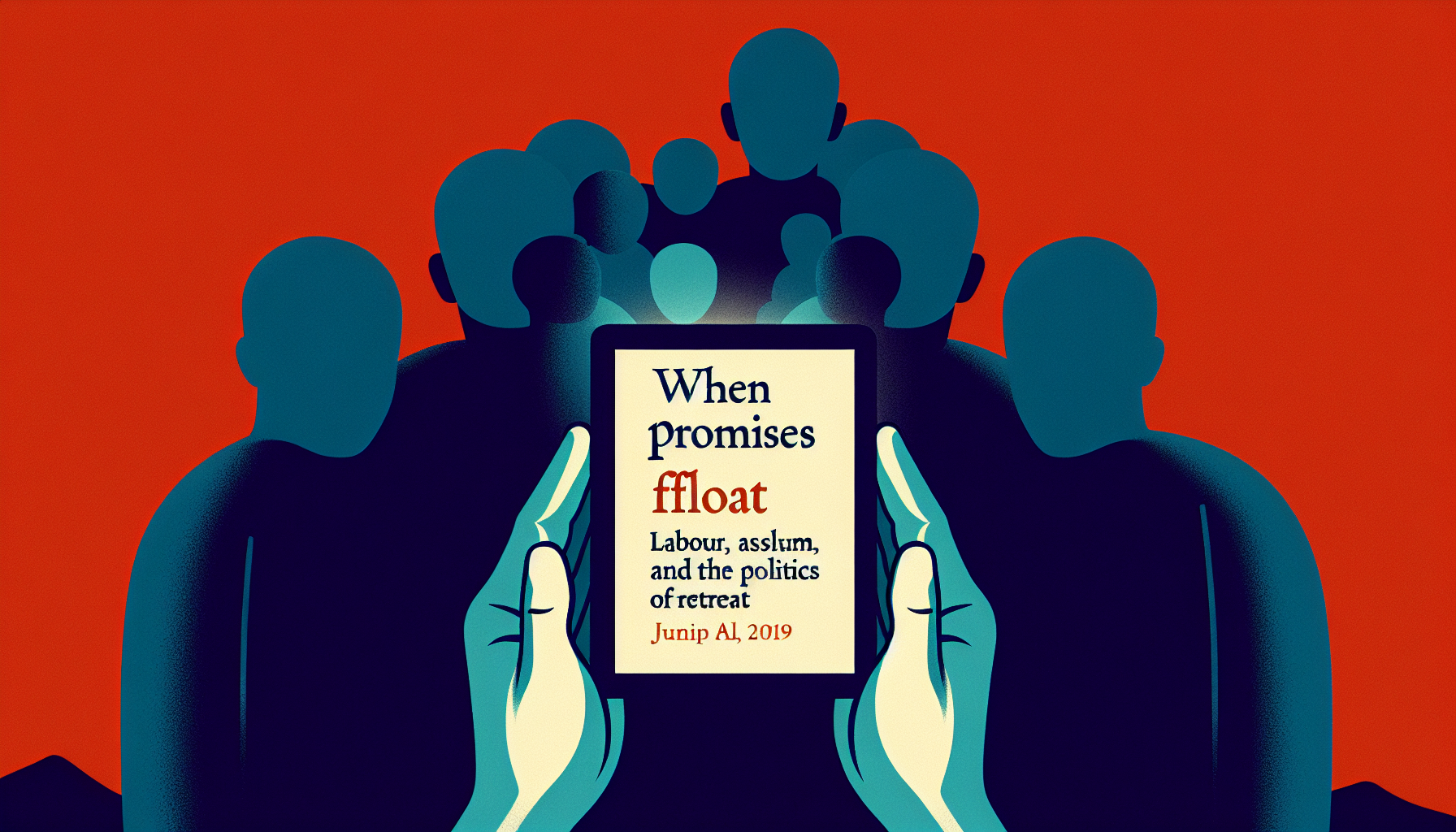Title: Barges, Promises, and Political Drift: Labour’s Pledge Hits a Wall of Reality
Dear readers,
What happens when political rhetoric meets the cold steel of bureaucracy? What does it say about the state of our asylum system when a party, elected on the promise of compassion, ends up renewing contracts for some of the very policies it condemned?
Today, we take you inside a controversy that isn’t about headlines—it’s about homes. More precisely, temporary accommodations that speak volumes about a country's moral coordinates. Let’s talk about Labour's contract to house asylum seekers in hotels and barges—a story that’s inconvenient, messy, and profoundly telling.
A Promise Drenched in Hope—or Hollow?
Let’s rewind. It’s June 2024. The Labour Party is still glowing from a landslide victory, with Keir Starmer standing at the helm promising a new direction. Their message was unequivocal: no more asylum hotels. No more Bibby Stockholm barge. No more warehousing of human beings in floating symbols of state failure.
And yet, mere months later, in October 2024, the Cabinet Office—under the newly election-swept Labour government—quietly renewed a wide-reaching contract. Its scope? Transport, venue booking, and yes, accommodation for asylum seekers up to September 2027. Including hotels. Including barges.
A “call-off contract,” as they call it. Less of a definitive action, more of a contingency plan. “Just in case,” they say.
Just in case… what, exactly?
Cracks in the Narrative
Labour's defense is swift and procedural. "It’s not our intention to use it." "The contract existed before." "It’s just framework coverage."
These statements feel eerily familiar—because they echo the justifications of their predecessors.
If this were a movie, this is the part where the twist hits you: the villain doesn't change the system. The hero becomes the system.
The tragic irony? Labour’s acknowledgment that the Tory method was “cruel” and “inhumane”—words echoed by Carla Denyer of the Green Party, who publicly denounced the continued possibility of using barges to accommodate asylum seekers.
And we’re not talking hypotheticals. One man tragically died aboard the Bibby Stockholm. Others have reported being fed rancid meals, living with bedbugs, and navigating mold-infested corridors. These are not figures from a war zone—they are lived experiences within UK borders under a liberal democracy.
So what does it mean when we keep the vehicle of trauma “just in case”?
The Business of Containment
Here’s a less savory truth: someone is profiting from this. Steven Smith, CEO of Care4Calais, put it bluntly: "The UK’s for-profit asylum accommodation model is broken." And he’s right.
Private companies sign contracts with the state to manage housing for migrants. The incentive isn’t humanity—it’s margin. That explains why some asylum seekers are placed in disused military barracks, or worse, on decaying vessels in port.
Remember Napier Barracks in Kent? A facility where a COVID-19 outbreak infected nearly 200 migrants? Or the infamous Penally Camp, described by the HM Inspector of Prisons as "unsuitable in principle" for housing vulnerable people?
These are not administrative missteps. They are policy choices. Made in Westminster, felt in Dover, and too often forgotten everywhere else.
Labour’s Gamble—Optics vs Integrity
Let’s not oversimplify. The current government inherited a bedlam: record Channel crossings, backlogged applications, crumbling facilities, and a public growing increasingly divided on migration.
But here’s the thing: campaigning on change while quietly perpetuating the same infrastructure is political gaslighting. When policies are made for optics, but real people sleep on damp sheets because of them, the cost is not only financial—it is ethical.
If accountability ends at a press release (“We promise no intention”), then what are promises for?
Lessons Written in Irony
There’s a heavier layer here.
Labour's situation is eerily reminiscent of the Obama-era detention centers in the U.S.—campaign promises to shut them down, ultimately overshadowed by their quiet expansion. Or Macron’s France, where pledges to “rethink” immigration led to increased police sweeps in migrant-dense suburbs of Paris.
This isn’t exclusive to the UK. It’s a systemic flaw in modern liberal democracies: political capital is spent saying the right things, and policy capital is spent doing the easy things—often at the expense of the vulnerable.
The British public was promised an end to “inhumane accommodations.” Instead, they are asked to accept a contract that keeps the same scaffolding standing, just under a new banner.
So What Now?
This moment isn’t just about hotels, barges, or border logistics. It’s about the integrity of a political promise, and the cost of bureaucratic hedging.
Somewhere in the English Channel, a small rubber boat is making a perilous journey towards our shores. Its passengers believe they’re fleeing danger, abuse, persecution. They’re hoping for fairness. Dignity.
And if they make it, some may very well end up in an old cruise liner, floating in the name of policy convenience.
Until next time, stay discerning. In politics, as in life, change isn’t judged by the words painted on the door—but by who feels welcome when they walk through it.
Yours truthfully,
A Watcher of Policies & Promises

